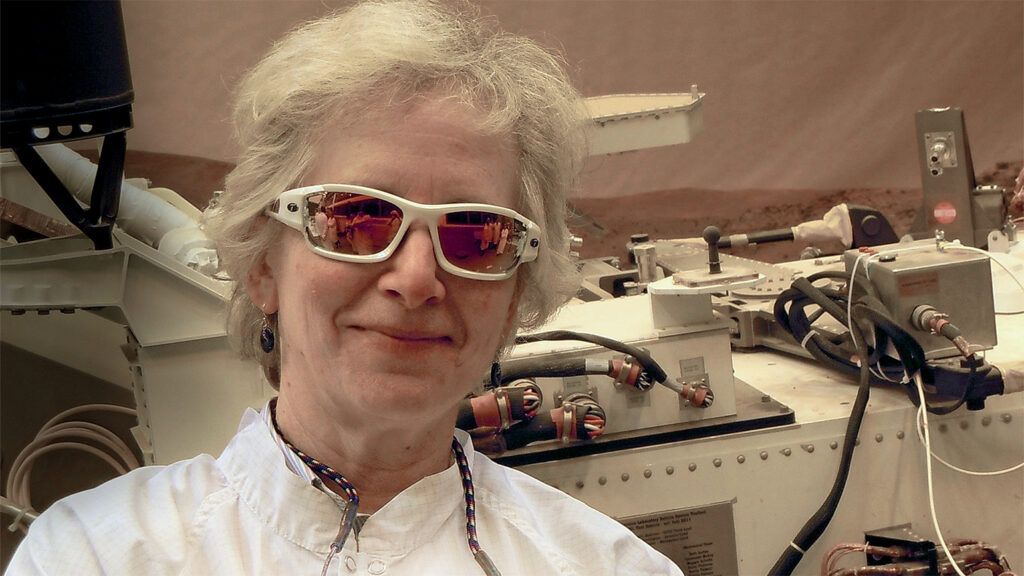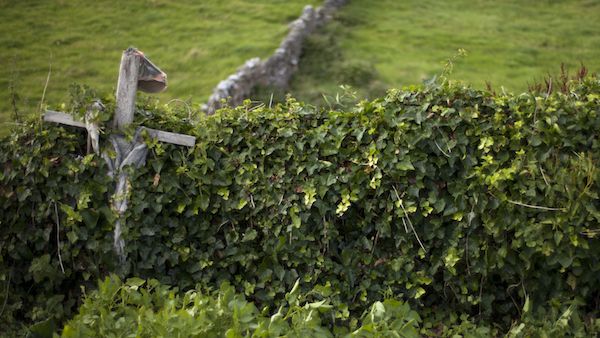Rev. Pamela Conrad is rector of St. Alban’s Episcopal Church in Glen Burnie, Maryland. She is also a research scientist at Washington, D.C.’s Carnegie Institution of Science, a member of the tactical operations team for the Mars Perseverance rover mission and a co-investigator at NASA’s Jet Propulsion Laboratory. She takes us behind her two heavenly pursuits.
What inspired you to pursue the scientific and the spiritual?
One night in 1957, Dad, a scientist, pointed out this tiny speck in the sky—Sputnik, the first satellite. I was almost five. I kept looking up at the stars, delighted. He made a model of the U.S. launch rocket and satellite Explorer, and I ran all around the house with it, captivated by the idea of exploring something as big as the sky. I loved science and music and got my undergraduate and graduate degrees in the latter. I went back to graduate school 20 years later to study geology, focusing on geobiology.
When I was a child, my grandmother gave me a book about God being everywhere. It made me think of God as like air. Then I became fascinated with Jesus after seeing a crèche at Christmas. Studying the Bible as a teenager, I began to understand Jesus as a person in which God was approachable. After college, I became disillusioned with what I saw as the failings of institutional religion. Fast forward to the early 2000s. I’d been a scientist for years, but the Holy Spirit’s call could not be resisted. I reengaged with the church and sought holy orders as a priest, becoming ordained in 2017.
How are science and faith intertwined?
Both are ways of understanding what God has created. My sense of call is to read “scriptures” written in nature with our Holy Scriptures, the Bible. Understanding their beautiful compatibility is my passion. It’s okay to explore what God has made, letting science guide us. It doesn’t distract us from everything God has enabled us to do. In fact, science is a tool God has given us.
Science teaches us that we are continuously growing in our understanding, something faith teaches as well. If God created the universe, all of this stuff resides in God—God’s own self gives everything energy to move and grow. Being a part of God, living in a universe that exists in God, means that we must evolve because we move and grow.
When we think about exploring the Scriptures for a more robust faith life, we should consider how exploring the world around us also gives us a more robust faith life because we know the author of all those things around us. In Romans 1:20, Paul talks about how God’s invisible qualities are visible in the creation of the world. Nature is a sacrament. It is enlivening to gaze at a mountain or, as I did, look at the night sky. Keep looking at the sky. It’s awesome!
How do scientific discoveries affect your prayer life?
In a sacramental denomination, we have morning prayer, noonday prayer and other specifically designated times to pray, but I am an extemporaneous prayer. Whenever I see a new image come from Mars (we get them really fast from a data repository and can then pull them up on our computers), I’ll take a look at the landscape and go, “I am so sorry, God, that I made you too small. Look at that! You are everywhere! You are so much bigger than we can imagine.”
For more inspiring stories, subscribe to Guideposts magazine.







